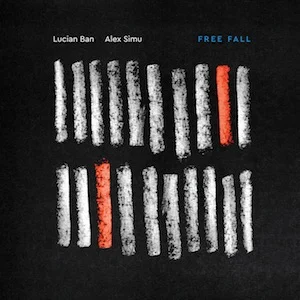Label: Sunnyside Records, 2024
Personnel - Alex Harding; baritone saxophone; Lucian Ban: piano; Mat Maneri; viola; Bob Stewart: tuba; Brandon Lewis: drums.
Baritonist Alex Harding and pianist Lucian Ban forged a friendship and musical collaboration around 1998 when the latter arrived in New York from Romania to attend the New School. Their first recording was for Ban’s debut album Somethin’ Holy (CIMP, 2002). With Blutopia, the pair expands the duo work presented in Dark Blue (Sunnyside, 2019), adding singular musicians such as violist Mat Maneri, tubist Bob Stewart, and drummer Brandon Lewis.
Having their musical ethos defying conventional jazz practices, the group begins hauntingly with “Speak Our Silence”, a collective improvisation that drifts slowly across the horizon, benefiting from the plodding dark sound of the tuba at the end. In the same vein but with touches of world music in its percussive tract, Ban’s “Mist” is inspired by Sun Ra, who seemed to be the inspiration for the album’s title. Paul Motian’s “Fantasm” perfectly fits the mood as an ambiguously exquisite piece limned by meditative cooing and a pleasant contrast of timbres.
Sculpted as a transcendental Eastern-tinged lament, the beautiful and hypnotic “Marrakesh”, inspired by and dedicated to the late pianist Randy Weston, showcases exceptional moments of improvisation and synchronicity between Harding and Ban. The group explores other directions, offering gospel and classical chamber narratives in Harding’s “Spirit Take My Hand” and Ban’s “Hymn”, respectively.
One of the most energetic pieces on the album is Andrew Hill’s “Blue Black”, here permeated with a monumental groove, gorgeous unison lines, and solos from Maneri, who employs his arresting exploratory melancholy to paint out of the frame, and Harding, whose bluesy wails expand into intense euphoria. Ban’s “Hieroglyphics” carries an implacably engaging blend of folk, avant-garde jazz, and fanfare-ish ragtime, with Lewis’ drumming standing out.
Blutopia underscores the maturity of these musicians who, engaged with focused attention, ascend emotional peaks together with multi-layered soulfulness.
Favorite Tracks:
01 - Speak Our Silence ► 02 - Blue Black ► 06 - Marrakesh










